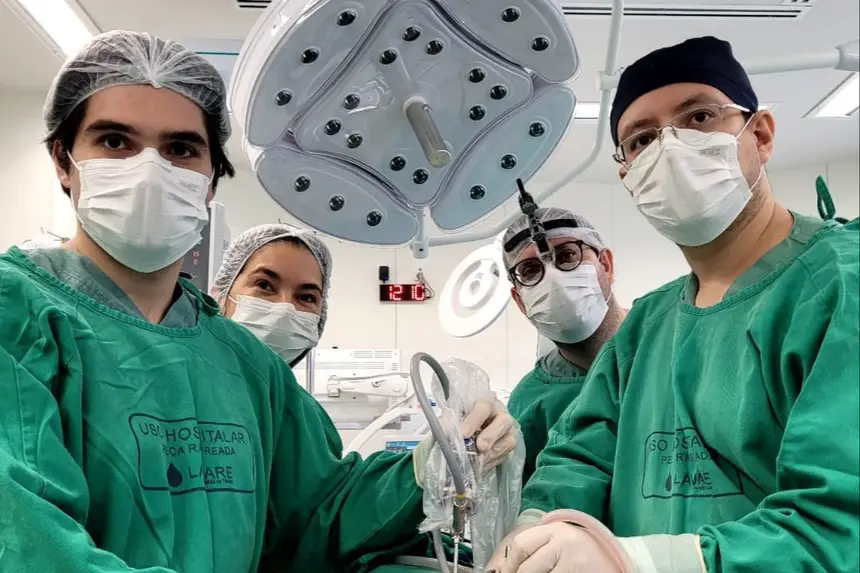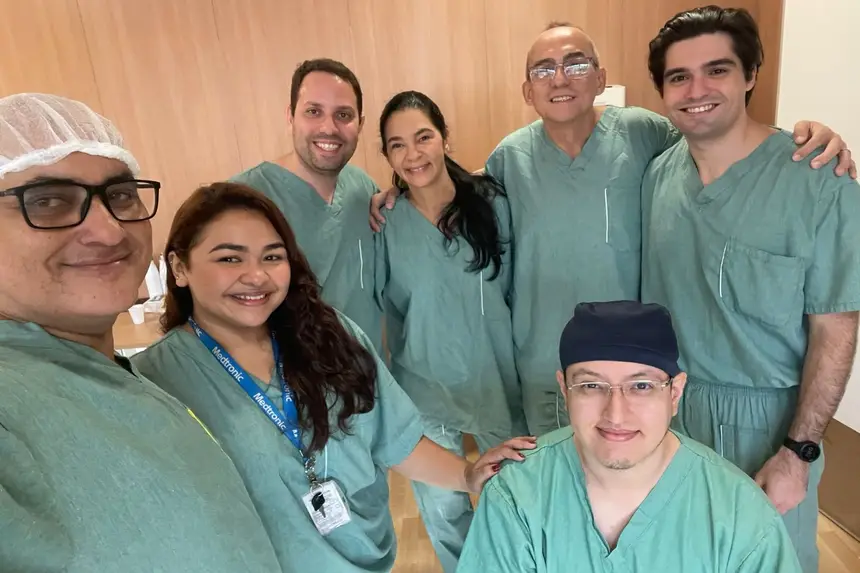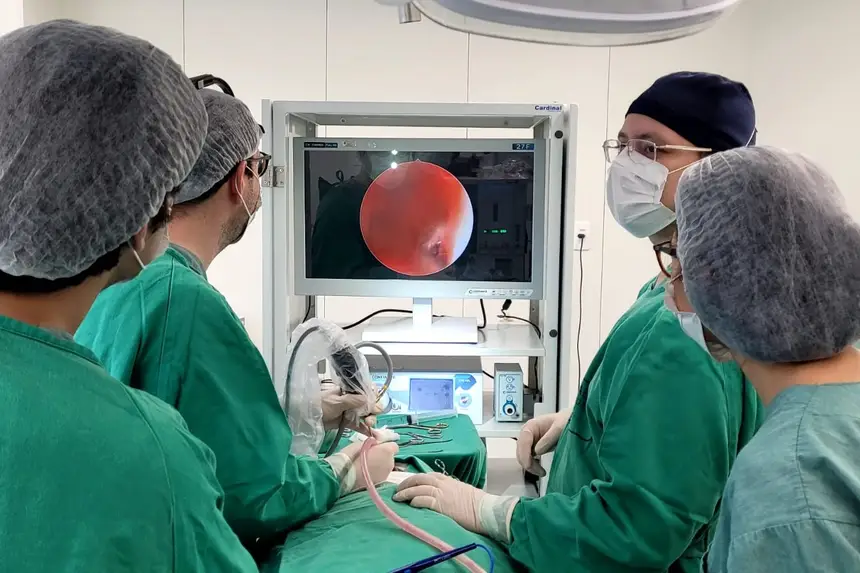Hospital da Mulher do Pará performs first neurosurgery using less invasive technique
The patient is doing well after surgery performed through the nasal cavity, using modern technology

The Hospital da Mulher do Pará (HMPA) performed, for the first time, a high-complexity neurosurgery using a minimally invasive technique to remove a pituitary tumor, a small gland located at the base of the brain. The patient, housewife Sueli Brito, from the municipality of Ipixuna do Pará, in northeastern Pará, was operated on by a specialized medical team last Sunday, the 25th, and is recovering well.
With specialized expertise in skull base surgeries, otolaryngologist Dr. Murillo Lobato explained that this type of tumor can cause symptoms such as visual disturbances, intense headaches, and hormonal disorders, making this intervention essential to relieve symptoms and prevent more serious complications.
The difference in this procedure lies in how it was performed. Instead of opening the skull, the doctors accessed the brain through the nasal cavity using an endoscope. This endoscopic approach allows for a precise and safe intervention, reducing the risk of complications and the length of hospitalization.
Neurosurgeon Simone Rogério stated that this type of surgery, which accesses the skull base using technology, is called endoscopic microsurgery for pituitary tumor resection. “We performed the tumor removal while preserving the pituitary gland. There was no need to open the cranial vault through the scalp, thus making it less invasive and without visible scarring,” emphasized the specialist.

The otolaryngologist reinforced that teamwork brings significant benefits. “This surgery is a true example of integration between specialties. The otolaryngology team safely accesses the skull base through the nasal route. Then, the neurosurgery team acts directly on the tumor, removing it precisely. It is a complex technique, performed only in large specialized centers, requiring total synchronization between the teams,” evaluated the doctor.
“It is a surgery indicated for most pituitary tumors, but the technique also applies to various pathologies affecting the anterior skull base, above and behind the nasal cavity. It is a very versatile technique that can also be used in isolation or combined with other techniques to treat various types of pathologies in other locations in the skull,” added the neurosurgeon.
For the specialist, the procedure was made possible through investment in modern equipment and the technical training of the hospital. “It is something unprecedented. Not only because of the special attention to the female audience but also due to the new standard established by the state government, which now provides the best and most current care, with modern and first-class facilities previously unseen in public health. It is certainly a victory for the entire population. Neurosurgery fits into this context with the noble and ambitious mission of meeting these expectations and providing the public with the safety and confidence that the hospital's patients will be treated at the highest standard,” she pointed out.
The general director of HMPA, intensivist Dr. Nelma Machado, highlighted that the unprecedented procedure at the hospital marked an advance in the provision of high-complexity treatments, consolidating the hospital as a regional reference in women's health care. “We are experiencing a milestone in the history of the Hospital da Mulher, the realization of the first neurosurgery. This is more than just a procedure; it reflects a hospital that advances with technical excellence and a commitment to life. The integrated action of the neurosurgery, otolaryngology, anesthesiology, and our ICU teams, which monitor high-complexity postoperative care, demonstrated the strength of the specialized and humanized assistance that we have become part of in the health care network. We continue in the state's purpose of providing comprehensive and qualified care to the women of Pará, with safety, innovation, and responsibility,” concluded the manager.










